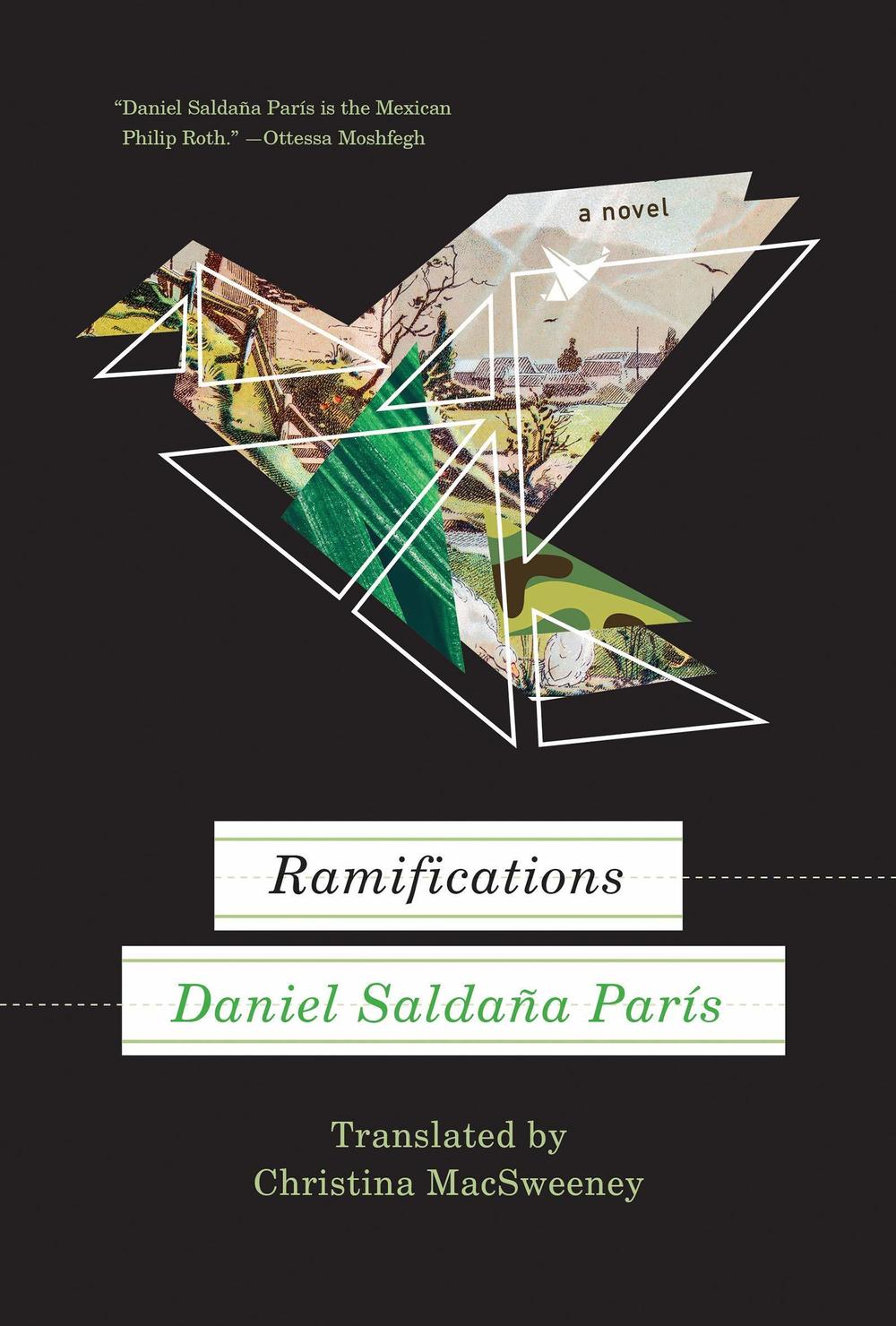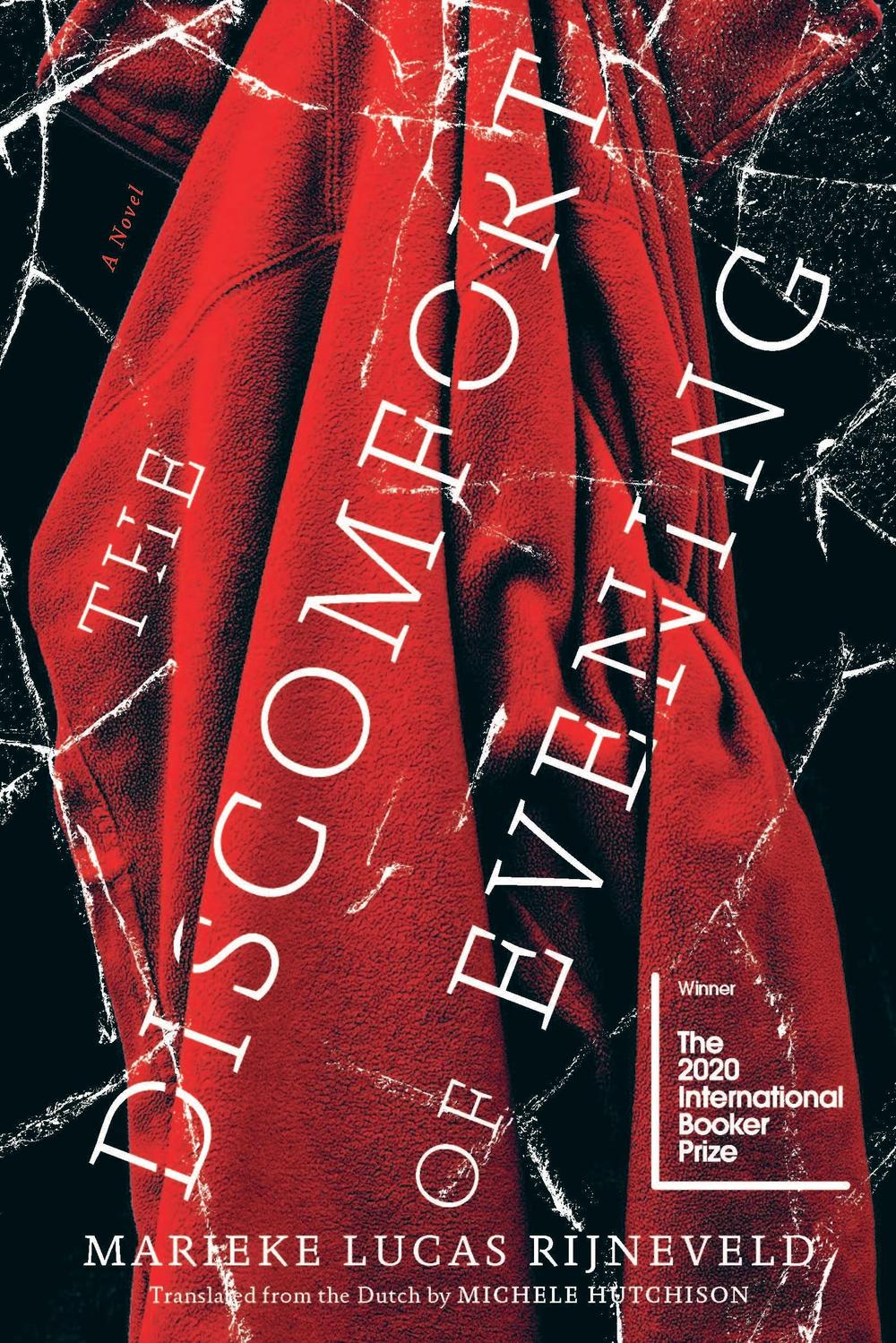Section Branding
Header Content
For Fall's Dark Days, 3 Tales In Translation To Match The Mood
Primary Content
For me, and I imagine not me alone, this fall has been a season of creeping dread. The presidential election had something to do with it, as did the arrival of cold weather and the departure of Daylight Savings Time, and, now, the terrifying national spike in coronavirus cases, which seems worse every time I check the news. No wonder, then, that I have found myself attracted to fiction suffused with melancholy, dread, and low-level doom. Reading darkness-filled novels has proved a useful way for me to manage the darkness outside. Below, in ascending order from melancholy to doom, are three newly translated novels I have been especially grateful for.
Ramifications, by Daniel Saldaña París, translated by Christina MacSweeney
The nameless narrator of Mexican novelist Daniel Saldaña París's second book, Ramifications, spends all his time writing in bed. He is, psychologically speaking, held prisoner by the memory of his mother Teresa, who left the family when he was 10. Teresa first went to Chiapas to join the Zapatistas; on failing, she remained there, and died several months later, leaving the protagonist and his sister in the care of their emotionally stunted father. Up to that point, the narrator explains, he'd seen his dad as "a sort of robot that provided transport and a certain amount of affection: something between a pet and an electronic gadget." Finding himself effectively abandoned with this man, he despairs.
Ramifications' story is a sad one, but the novel is often tragicomic. Saldaña París excels at imbuing his earnest protagonist's effort to write himself free from his memories with levity, which MacSweeney — a highly gifted translator who seems to specialize in voice-driven and tonally complex books — conveys beautifully. The result is an idiosyncratically compelling narrative capable of provoking both laughter and tears. Ramifications' drama stems not from present event but from the narrator's realization that "[w]riting about the past is ... writing inward, not forward." Will he be able to bear looking inside himself? Can he free himself from his childhood? The more the protagonist flails and struggles, the more urgently readers will hope the answer is yes.
The Discomfort of Evening, by Marieke Lucas Rijneveld, translated by Michele Hutchison
This fall, the Dutch writer Marieke Lucas Rijneveld's debut, The Discomfort of Evening, became the first Dutch-language book to be shortlisted for — and to win — the International Booker Prize. Rijneveld writes poetry as well as fiction, which shows: Their prose, in Michele Hutchison's superb translation, shows a poet's interest in small, slow details. The novel, which is set on a dairy farm in a small village, is at once spare and luminous, haunting without calling attention to the fact. Rijneveld's sentences linger, as does their 10-year-old protagonist Jas's grief for her brother Matthies, who dies in the novel's first pages. Jas and her younger siblings are wholly unequipped for grief; their parents, who are devout Reformed Protestants, swiftly prove unable to help. Jas's mother stops eating and withdraws from her living children; her father grows alarmingly stern and remote. He refuses to engage with his kids' mourning, at one point telling Jas that "children can't have worries," though she "keep[s] discovering more and more worries of [her] own."
Without parental support, Jas and her siblings develop a sequence of rituals, both private and shared, to process their grief. Some, like Jas's refusal to take her coat off, are muted but heartbreaking. Others escalate to include incest and animal cruelty, and are so difficult to read that Hutchison told the New York Times she didn't translate "those passages at the end of the day, in case I would get nightmares." Bad dreams are a risk for readers here, but Rijneveld manages their novel's painful content delicately and well. Even the most wrenching scenes never seem gratuitous; they are thoroughly worth the emotional effort that Rijneveld asks their readers to make.
At Night All Blood is Black, by David Diop, translated by Anna Moschovakis
The French writer and academic David Diop's astonishingly good second novel, At Night All Blood Is Black, is not much larger than a grown man's hand — a fact I considered often as I read, given that its protagonist Alfa Ndiaye, a Senegalese rifleman fighting for France in World War I, spends the first half of the novel cutting off Germans' hands. After his "more-than brother [and] childhood friend" Mademba Diop dies an agonizingly slow death in no-man's-land, Alfa sets out for vengeance, which he exacts with such ruthless chill that his regiment grows convinced he is a soul-eating "soldier sorcerer." Alfa himself puts it differently: He has abandoned "the voice of duty" in order to punish the Germans for killing Mademba, but, as a result, he has "become death."
Throughout the novel, Diop has Alfa repeat the refrain, "I know, I understand," which comes to seem almost a curse. Alfa understands that his revenge is growing ghoulish; he understands that France as a colonial force is exploiting his bravery and his grief; he understands, even, that he is in part responsible for Mademba's suffering, which is perhaps the novel's most harrowing thread. But Alfa's understanding cannot free him. He is, in effect, doomed by his own comprehension. Diop's prose, which is at once swift and dense, captures that effect well. He and his translator, Anna Moschovakis, wall the reader into Alfa's mind and his story, refusing even the smallest glimmer of light.
Lily Meyer is a writer and translator living in Cincinnati, Ohio.
Copyright 2020 NPR. To see more, visit https://www.npr.org.
Bottom Content



